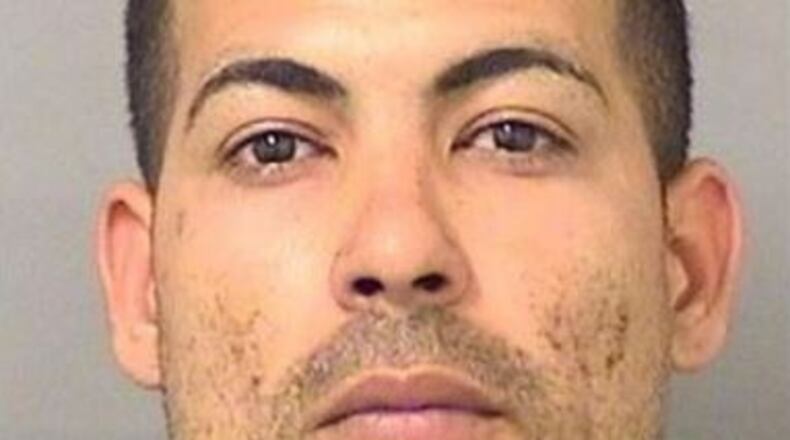A Florida man was sentenced to seven years in prison Thursday for his role in a $1.6 million jewelry heist in Kennesaw and it turns out that he was caught because he was a shoddy driver, his burglary crew was too picky about its jewels, and they didn’t sort their trash.
Osniel Labrada-Guillen, 30, burglarized Diamonds R Forever on Wade Green Road in Kennesaw in January 2010, Cobb District Attorney Vic Reynolds said. Labrada-Guillen cut holes in the roof, disabled the phone and alarm systems, then cut a hole in a safe and got away with jewelry, Reynolds said.
The crew used a sophisticated technique of disabling the alarm system and retreating to observe if they had alerted authorities. After no police appeared they returned to the roof and entered the business, said Don Geary, chief assistant district attorney who handled the case.
The crew then used power tools to cut through the five-inch-thick safe walls and packed up the jewelry in a plastic bin from the store that had contained Christmas ornaments, Geary said.
That is when they made their first critical mistake, Geary said.
Labrada-Guillen and his crew apparently had eaten meals from Wendy’s during the burglary and tossed restaurant rubbish into the bin with jewels, Geary said. Labrada-Guillen favored a Frosty.
Labrada-Guillen, however, and his crew quickly decided some of the jewelry from the heist — jewelry the store was repairing for customers of more modest means — was low quality. That is when they made a second critical mistake.
They jettisoned those jewels and the Wendy’s litter in a trash dumpster about two miles from Diamonds R Forever, Geary said. They left them in the bin from the store, which police quickly linked to the burglary.
That momentary sloppiness proved Labrada-Guillen’s undoing, Geary said. The burglar left his DNA on a spoon for a Wendy’s Frosty ice cream, and his partial fingerprint was found on the Wendy’s bag.
Unfortunately for authorities, the then 25-year-old Labrada-Guillen did not have a criminal record so his fingerprints and DNA were not on file. However, he did have a bad driving record and last year he committed one driving offense too many and elevated the offense to felony status under Florida law. Authorities there took his DNA.
That DNA swab allowed Cobb County investigators to solve the case, Geary said. “We had a match,” he said.
But they still had a legal road block. Georgia law requires burglary cases to be indicted within four years and Labrada-Guillen’s case fell outside the legal deadline, Geary said. Prosecutors circumvented that hurdle after investigators tied Labrada-Guillen to four more burglaries in Florida, Texas and Indiana, at least one by DNA left on a ski mask found at a Hoosier heist, and indicted him for racketeering because he was part of a continuing criminal enterprise, Geary said.
Labrada-Guillen told Superior Court Judge Henry Thompson he would waive any legal challenges to the burglary conviction if allowed to plead to the lesser offense. Thompson sentenced him to 20 years with seven in prison and 13 on probation.
“It appears your attorney has done a very good job on your behalf,” Thompson said.
He also required him to repay $1.6 million in restitution but acknowledged that Labrada-Guillen would probably never be able to repay the amount, which his lawyer had calculated at $21,000 a month for the payment schedule.
“We’re all realists here,” Thompson said.
Labrada-Guillen had another bit of bad luck. Geary said the Georgia sentencing reforms had not yet been enacted by the legislature when Labrada-Guillen committed his crime so he was sentenced under the 2010 law.
Under the old law he faced a maximum 20 year sentence for a commercial burglary; now it is only five years, Geary said.
Federal authorities have taken over prosecutions involving Labrada-Guillen’s burglaries in Florida, Indiana and Texas, Geary said.
About the Author
The Latest
Featured


